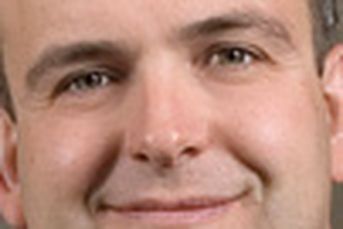Schwab continues to assert its innocence in ARS case
Fourteen securities firms have reached settlements with N.Y. attorney general Andrew Cuomo over the sale of auction rate securities. The discount brokerage is taking a different approach.
The Charles Schwab Corp. continues to dig in its heels over New York Attorney General Andrew Cuomo’s claim that it sold auction-rate securities to investors fraudulently.
Although 14 securities firms have reached settlements with Mr. Cuomo and dozens have settled with other regulators over alleged sales abuses in the auction-rate market, Schwab is seeking dismissal of the complaint that New York filed last August, according to a person close to the case who was not authorized to discuss the issue.
Schwab lost an attempt earlier this year to move the case to federal court from New York State Supreme Court, where Mr. Cuomo has more leeway to press his claims.
Mr. Cuomo, a likely candidate for New York’s 2010 Democratic gubernatorial nomination, has charged Schwab with misleading clients into thinking that auction-rate securities were as liquid as money market funds, even after the auction-rate market froze in February 2008, the person said.
Sarah Bulgatz, a spokeswoman for Schwab, declined to comment. A spokesman for Mr. Cuomo didn’t return calls seeking comment.
Schwab, a so-called downstream seller of auction-rate securities, was less involved in the market than the organizers of the auctions, such as The Goldman Sachs Group Inc. and UBS AG.
Although other downstream firms, including Oppenheimer & Co. Inc., have reached multimillion- dollar ARS settlements with regulators, Schwab is taking an unusually aggressive stance in asserting its innocence.
The auction-rate market collapsed in February 2008, leaving thousands of investors unable to redeem billions of dollars of securities marketed as being highly liquid.
Lawyers and securities analysts contend that Schwab is less worried about the financial damages that it could suffer from lawsuits than about the consequences of allowing outsiders to dictate how it operates its business.
In a Wall Street Journal Op-Ed last summer, founder Charles R. Schwab waved the flag of investor choice and suggested that regulators and litigators trying to hold his firm responsible for those choices jeopardize the integrity of the discount-brokerage model.
Some 90% of Schwab clients who bought auction-rate securities, which paid slightly higher interest rates than money market funds, actively requested the instruments, he wrote.
“Unfortunately, we are now seeing a conscious effort to limit — if not eliminate — all risks for the individual investor, whether through consumer “protection,’ fiduciary liability for brokers or the threat of litigation that attempts to make our firm, and others like us, more like an insurance company than a broker,” Mr. Schwab wrote. “The logical outcome would be that individual investors would be constrained to a small set of plain-vanilla investments — Treasuries for all — or would be forced to pay us a fee to manage their account.”
TD Ameritrade Holdings Inc., another discount firm that argued that it shouldn’t be liable for selling auction-rate securities that it didn’t help create, last year agreed to repurchase some $400 million of frozen securities.
“We decided to put this behind us and move the organization forward,” chief executive Fred Tomczyk said in an interview at the time. He cited a desire to stanch negative publicity and stem lawsuits.
TD Ameritrade recently said that investors have redeemed only about $300 million of the securities.
When Mr. Cuomo sued Schwab, some analysts estimated that its clients were holding less than $200 million of auction-rate securities, a relatively small amount by comparison with many competitors’ exposure and with the company’s $5.1 billion of equity capital. However, Schwab’s tenacity could incrementally hurt its capital base, along with its reputation, at a time when it is facing other legal battles, lawyers and analysts said.
“Schwab’s position may indeed be appropriate, given its discount model and its non-originating role for the ARS product,” said Bill Singer, a plaintiff’s attorney at Stark & Stark. “But my caution to the Street is simple: You all need to rebuild the public’s confidence in your integrity. Think carefully about when and where you choose to play hardball.”
Alex Neihaus, an individual investor who said that he is stuck with $75,000 of auction-rate securities purchased from Schwab after selling the bulk of his position, argued that the firm is “hiding behind principle” in refusing to settle.
“It’s so minor that they could make people like me go away for almost nothing,” he said. “But their marketing and salespeople have no ethics.”
Mr. Neihaus said that Schwab forced him to close his account after he attacked the firm on his blog and in newspaper interviews.
Ms. Bulgatz declined to respond to Mr. Neihaus’ comments.
Schwab’s stance is “more about the principle” than the money, said Richard Repetto, an analyst at Sandler O’Neil & Partners LP. In an April 1 report, Sandler O’Neil warned of a potentially more serious capital issue stemming from Schwab’s legal battles over its YieldPlus mutual funds.
The Securities and Exchange Commission is weighing a lawsuit over the marketing of the funds, which were heavily concentrated in uninsured mortgage-backed securities and which plummeted in value during the market collapse of 2008 and 2009.
A judge in the U.S. District Court for the Northern District of California ruled March 30 that Schwab illegally boosted YieldPlus’ mortgage-backed holdings without getting shareholder approval. Schwab also faces arbitration claims and class actions from investors who allege that it marketed YieldPlus as a conservative investment.
The litigation could end up costing Schwab $400 million, resulting in a capital hole of $385 million to $635 million, Mr. Repetto wrote in his April 1 report.
“There are far too many variables and unknowns in the equation at this time to be able to draw these particular conclusions,” Greg Gable, a Schwab spokesman, wrote in an e-mail at the time.
Dan Jamieson contributed to this story.
E-mail Jed Horowitz at [email protected].
Learn more about reprints and licensing for this article.




